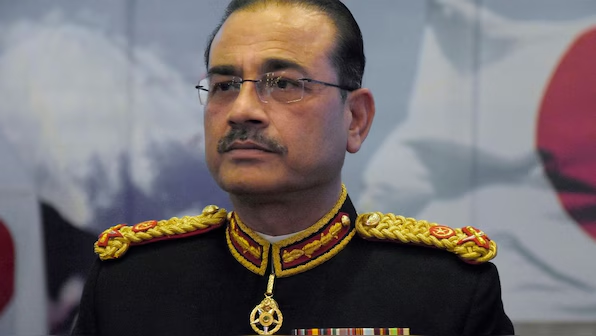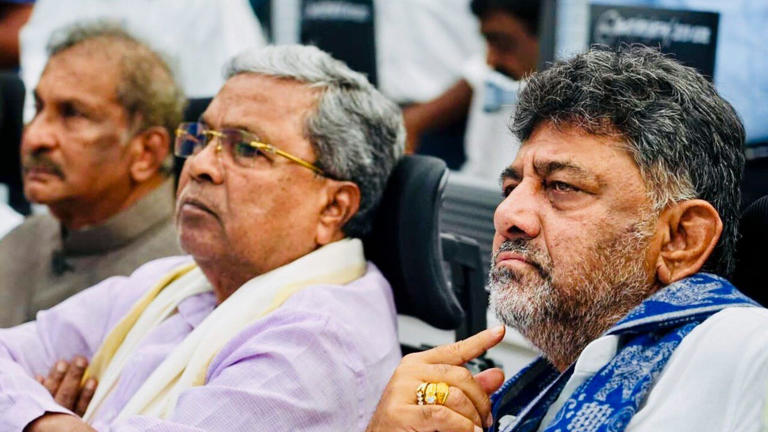Diaspora protests expose military repression as Pakistan’s global image collapses amid Iran-Israel crisis
The image was surreal but symbolic. As Pakistan’s Chief of Army Staff General Asim Munir stepped out of Washington’s Four Seasons Hotel, he was greeted not with diplomatic warmth but with loud slogans, chants of “Shame on you!”, and angry Pakistani-origin protesters calling him a “killer of Pakistanis.” The heckling came just hours before Munir’s anticipated meeting with former U.S. President Donald Trump, who is attending the G7 Summit in Canada.
This public spectacle wasn’t just a diplomatic faux pas—it was a revealing moment in global politics, where Pakistan’s internal crises spilled onto the international stage. More importantly, it highlighted the growing embarrassment Pakistan’s military leadership faces abroad, even as it tries to position itself as a regional stabilizer amidst the Iran-Israel conflict.
From Four Seasons to Firestorm: Diaspora Protesters Call Out ‘Killer General’
The protests outside the luxury hotel in Washington were unprecedented. Civilians shouted slogans in Urdu and English, calling Munir a “jackal,” “civilian suppressor,” and mocking him as “khota hai haramzada” (a disgraceful donkey). These weren’t random insults. They were a direct indictment of the Pakistan Army’s brutal suppression of dissent, its political interference, and the state’s decaying governance structure under military influence.
Failed Marshal Asim Munir getting abused and cursed by Pakistanis in America pic.twitter.com/LeOSq63lLh
— Amitabh Chaudhary (@MithilaWaala) June 17, 2025
What makes the situation even more embarrassing for Islamabad is the timing. Munir’s visit was meant to project Pakistan’s strategic alignment with the U.S., especially at a time when the Iran-Israel conflict threatens to engulf the region. But instead of walking into high-level talks with legitimacy, Munir walked into a PR disaster—one televised and streamed worldwide.
The hecklers, many of whom appeared to be from the Pakistani diaspora, referenced civilian killings, media suppression, and Pakistan’s economic decline. And all this played out on American soil, just as Trump was preparing to engage with Munir in the context of West Asian tensions.
Munir Meets Trump, But India Steals the Spotlight with Strategic Diplomacy
General Munir’s humiliation also comes in the shadow of India’s strong international positioning. Prime Minister Narendra Modi, who recently held calls with both Trump and U.S. Vice President Vance, conveyed a clear message: India will respond decisively to terrorism and cross-border provocations. In fact, Modi reportedly told Trump that if Pakistan attacks, India’s reply will be even bigger.
This contrasts sharply with Pakistan’s image, which is increasingly associated with instability, terrorism support, and a failing economy. Munir’s trip was presumably aimed at seeking U.S. assurance, possibly even backing amid the Iran-Israel crisis. But the heckling has weakened his diplomatic capital—and reminded the world that Pakistan’s army is deeply unpopular among its own people.
Moreover, while India is seen strengthening global ties—arming Armenia, securing evacuations from Iran, and cementing its G7 narrative—Pakistan’s top military leader is being chased by angry citizens in a foreign capital.
General Asim Munir’s heckling in Washington is more than a viral moment—it’s a geopolitical embarrassment for Pakistan. In an era where public image and soft power matter, such incidents expose the moral and political bankruptcy of Islamabad’s military establishment. And with India rising diplomatically, militarily, and strategically on the global stage, the contrast has never been sharper. As the world watches the shifting dynamics of South Asia, one thing is clear: Pakistan’s army no longer commands global respect—it faces global rejection.





















